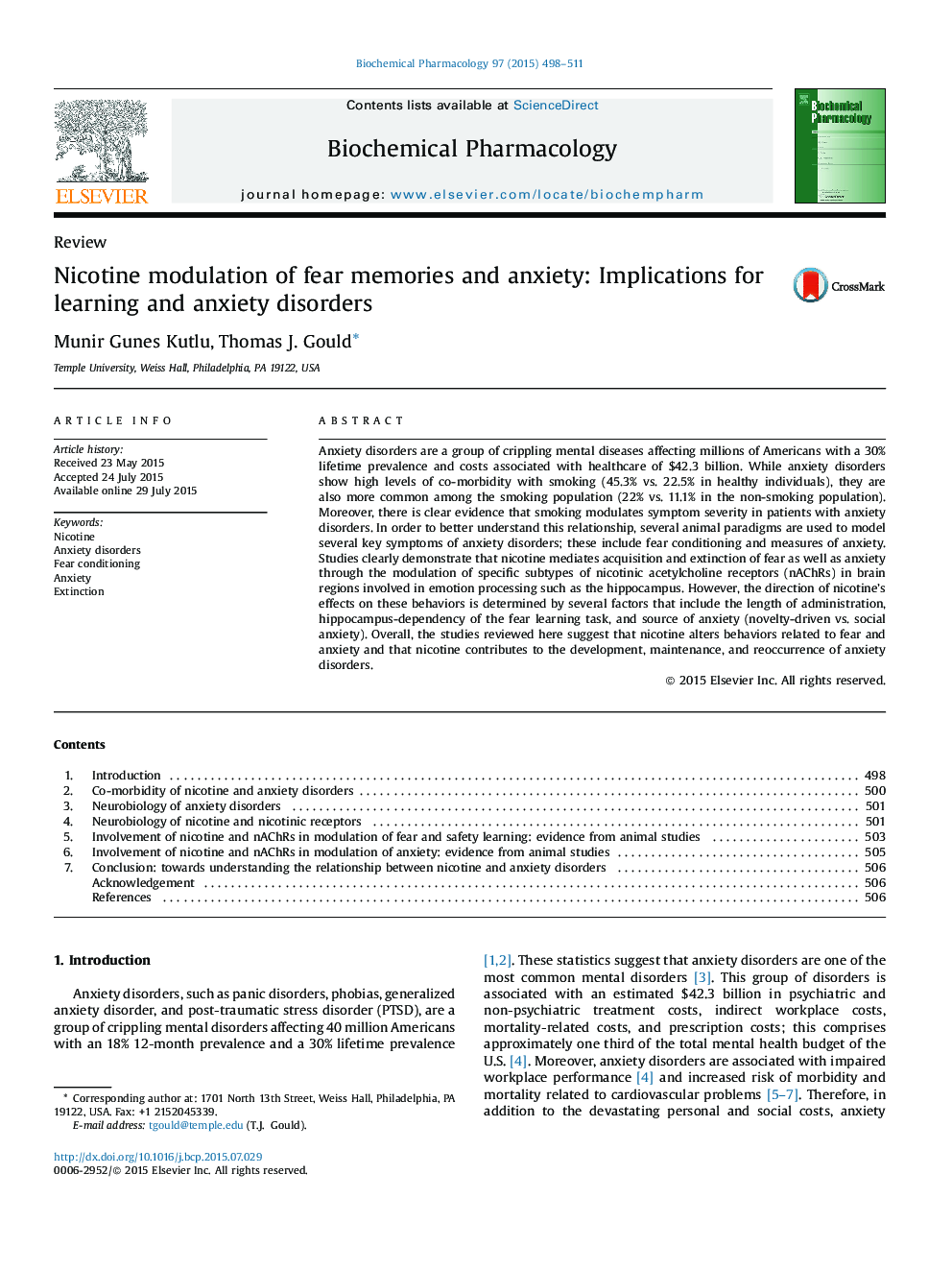| کد مقاله | کد نشریه | سال انتشار | مقاله انگلیسی | نسخه تمام متن |
|---|---|---|---|---|
| 2512003 | 1118308 | 2015 | 14 صفحه PDF | دانلود رایگان |
Anxiety disorders are a group of crippling mental diseases affecting millions of Americans with a 30% lifetime prevalence and costs associated with healthcare of $42.3 billion. While anxiety disorders show high levels of co-morbidity with smoking (45.3% vs. 22.5% in healthy individuals), they are also more common among the smoking population (22% vs. 11.1% in the non-smoking population). Moreover, there is clear evidence that smoking modulates symptom severity in patients with anxiety disorders. In order to better understand this relationship, several animal paradigms are used to model several key symptoms of anxiety disorders; these include fear conditioning and measures of anxiety. Studies clearly demonstrate that nicotine mediates acquisition and extinction of fear as well as anxiety through the modulation of specific subtypes of nicotinic acetylcholine receptors (nAChRs) in brain regions involved in emotion processing such as the hippocampus. However, the direction of nicotine’s effects on these behaviors is determined by several factors that include the length of administration, hippocampus-dependency of the fear learning task, and source of anxiety (novelty-driven vs. social anxiety). Overall, the studies reviewed here suggest that nicotine alters behaviors related to fear and anxiety and that nicotine contributes to the development, maintenance, and reoccurrence of anxiety disorders.
Figure optionsDownload as PowerPoint slide
Journal: Biochemical Pharmacology - Volume 97, Issue 4, 15 October 2015, Pages 498–511
